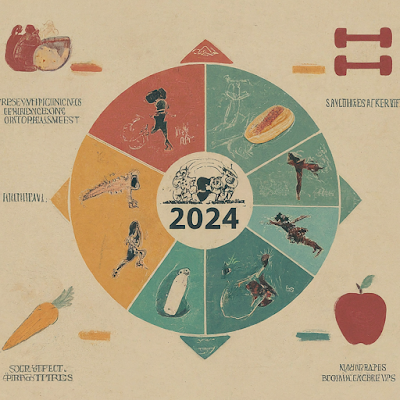The Way to Healthy Eating: Nourish your body with the right foods.
Healthy eating
is not just a trend. It is an important component of a long and fulfilling
life. Our food choices directly affect our physical health, mental well-being,
and overall quality of life. Even so, with diet trends and nutritional advice,
it can be very difficult to determine what is truly best for our bodies. This
guide aims to demystify healthy eating, focus on practical advice and the
benefits of including healthy foods in your diet.
Understanding
Healthy Eating
Eating healthy
is more than just weight loss or calorie counting. It involves a balanced
approach to eating a variety of foods that provide essential
nutrients—vitamins, minerals, fiber, protein, and healthy fats—that help
maintain good health, maintain energy, and are necessary to support bodily
functions. A healthy diet is based on moderation, variety and balance.
1. Moderation:
It is not about eliminating foods but enjoying them in moderation. This helps
avoid overconsumption of certain nutrients while ensuring we get enough of
others.
2. Variety:
Eating a wide range of foods ensures that we get a spectrum of nutrients
necessary for our body's diverse functions.
3. BALANCE:
A balanced diet includes all food groups—fruits, vegetables, grains, protein,
and dairy—in the right proportions.
Essential Components
Of A Healthy Diet
1. Fruits
and Vegetables: Make fruits and vegetables rich in vitamins, minerals,
antioxidants, and fiber an important part of your daily diet. They help reduce
the risk of chronic diseases, maintain a healthy weight and improve digestion.
- TIP: Aim for a colored plate.
Different colors often represent different nutrients. For example, leafy greens
like spinach are rich in iron and vitamin K, while orange foods like carrots
are rich in beta-carotene and vitamin A.
2. Whole
Grains: Unlike refined grains, whole grains keep all parts of the grain
intact, making them more nutritious. They provide essential nutrients such as
fiber, B vitamins, and minerals such as iron, magnesium, and selenium.
- Examples: Oats, brown rice, quinoa,
and whole wheat products.
3. LEAN PROTEIN: Protein is vital for building and repairing tissues, making
enzymes and hormones, and supporting immune function. Choose lean sources of
protein to avoid excess saturated fat.
- Sources: Chicken, turkey, fish, beans, lentils, tofu, and low-fat dairy.
4. Healthy
Fats: Not all fats are created equal. Unsaturated fats found in nuts,
seeds, avocados and oily fish are beneficial for heart health, while trans fats
and excessive saturated fats should be limited.
- Incorporation: Use olive oil for
cooking, snack on nuts and seeds, and add avocado to salads and sandwiches.
5. Dairy (or
Alternative): Dairy products are excellent sources of calcium, vitamin D
and protein. For those who are lactose intolerant or vegan, fortified
plant-based alternatives such as almond, soy, or oat milk can be good
alternatives.
- Options: low-fat or fat-free milk,
yogurt, and cheese; Strong non-dairy alternatives.
Practical Tips
For Healthy Eating
1. Plan Your
Meals: Meal planning helps ensure a balanced diet and reduces the
temptation to make unhealthy, last-minute food choices. Include a mix of
protein, whole grains and vegetables at every meal.
2. Mindful
Eating: Pay attention to your hunger and fullness cues. Eat slowly, savor
each bite, and avoid distractions like the TV or smartphone while eating.
3. Stay
Hydrated: Water is essential for all bodily functions. Aim to drink at
least 8 glasses a day, and more if you're active. Herbal teas and water-rich
foods like cucumbers and watermelon can also help you stay hydrated.
4. Limit
added sugar and sodium: Excess sugar and sodium can lead to health problems
such as high blood pressure, heart disease and diabetes. Read food labels to
check for hidden sugars and choose natural sweeteners like honey or fruit.
5. Cook at
Home: Preparing your own meals allows you to control the ingredients and
portions. Experiment with healthier recipes and cooking methods such as
grilling, steaming or baking instead of roasting.
Benefits Of Healthy Eating
1. Weight
Management: A balanced diet helps maintain a healthy weight, reducing the
risk of obesity and related conditions such as type 2 diabetes and heart
disease.
2. Better
Mental Health: Nutrient-rich foods can improve brain function, improve
mood, and reduce symptoms of depression and anxiety. Omega-3 fatty acids found
in fish and antioxidants in fruits and vegetables are particularly beneficial.
3. Increases
Energy Levels: Eating a variety of foods ensures a constant supply of
energy throughout the day, which helps reduce blood sugar levels.





































